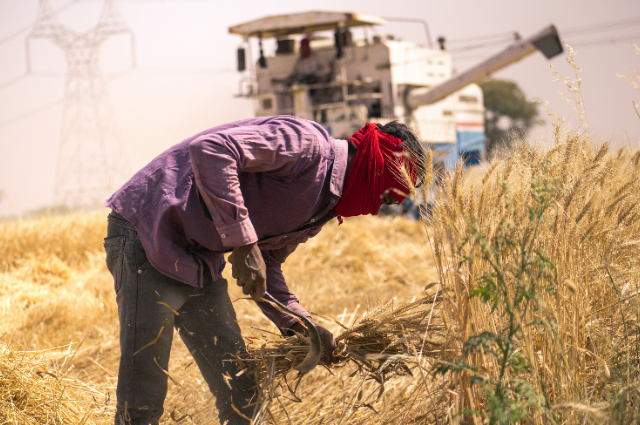
Photo by Anurag Gautam on Unsplash
The apex body that supervises the credit activities with respect to rural development, that is, the National Bank for Agriculture and Rural Development (NABARD) plans to introduce a 'Rs 1000 crore fund' to support the rise of tertiary-based agri-startups which also extends an additional Rs 750 crore fixated for pre-seed investments and thereby attempting to develop innovative solutions that attend to the distresses of the primary sector.
The new investment shall lay with some new players apart from the traditional farmers to evolve the system into the functioning of production credit from investment credit.
Associated Challenges:
An agricultural starting is a baby business venture that attempts to develop business models that seek to improve efficiency in the agricultural sector.
Services Offered:
- Providing information on crop yields, rainfall patterns, pest control and the ways of better soil upgradation.
- EM3 Agri Services offers farming services and machinery rentals to farmers on a pay-for-use basis.
- Developing agriculture-specific and data-backed diagnoses to enhance crop health, thereby supplementing farmer's income. This often involves the use of AI.
- They are said to be utilising data-driven technologies such as IoT, drones and satellite imagery for precision farming, crop monitoring, and yield optimization. It also attempts to stress on methods of green farming. Also, attempting to provide digital software tools for farm and inventory management.
- Establishing themselves a connection with buyers, retailers and consumers through e-commerce platforms based on market intelligence. Streamlining logistics and storage operations including transportation of raw material and stuff like that.
- Packaging solutions to enhance the shelf-life, nutritional value and marketability of agricultural produce.
Challenges:
- These agri-startups focus more on agricultural marketing tending to ignore bigger value chain challenges.
- They are constantly working to seek for the maximum number of seeds and crops, the remunerative price offered by the government, that is, Minimum Support Price and making small subsidies effective to an extent that it contributes to overall growth.
- These agri-startups are attempting to revolutionise the primary sector of the economy by diversifying it with other allied sectors. They want to integrate modern farming practices and given that, they expect the traditional farmers to give a lucrative yield.
Key Initiatives taken by the Government:
- Digital Agriculture Mission (DAM) with the Indian Digital Ecosystem of Agriculture (IDEA) and access and funding to new technology.
- Innovative and Agri-Entrepreneurship Development Programme under the Rashtriya Krishi Vikas Yojana (RKVY)
- NIDHI Seed Support Programme (NIDHI-SSP) under the Department of Science and Technology (DST)
This steps comes in the backdrop of limited access to equity and debt instruments to create a forward and growing rural ecosystem.
. . .
References:
- nabard.org
- drishtiias.com
- civilsdaily.com
- insightsonindia.com
